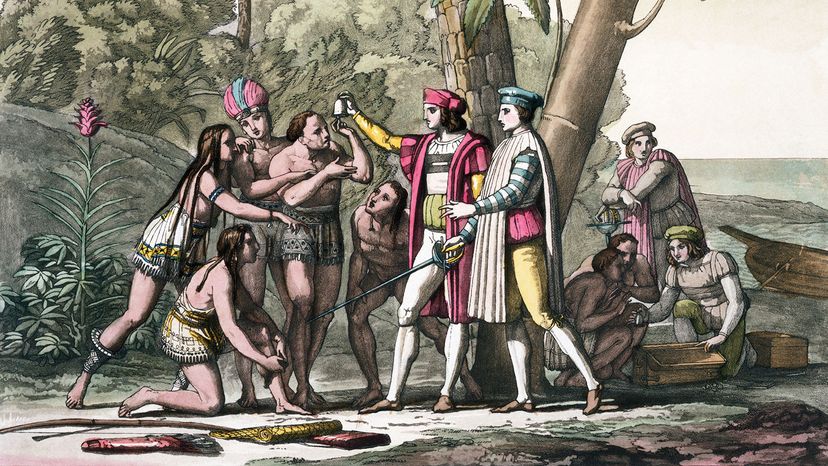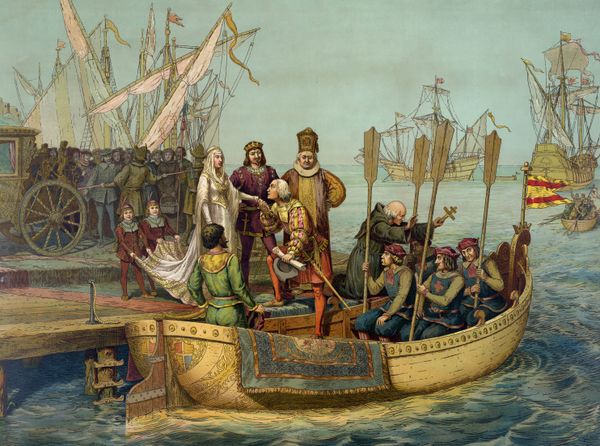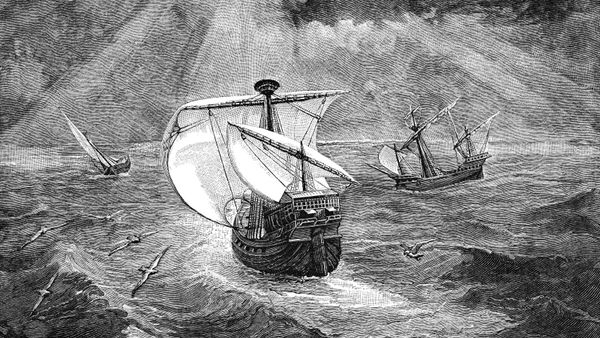The anti-Columbus Day movement has its detractors, though. Some believe it's a case of political correctness run wild, while others allege that repealing Columbus Day would be an affront to another ethnic group: Italian-Americans.
"When Columbus Day was founded in 1937, the federal holiday provided a sense of dignity and self worth in light of the hostility and discrimination many Italian immigrants, Italians Americans, and Catholics (more broadly) faced," writes the National Italian American Foundation in a statement. "Less than five decades before the holiday's establishment, 11 Italians were lynched in New Orleans, the biggest mass lynching in U.S. history."
An estimated 4 million Italian immigrants came to America between 1880 and 1920, mostly peasant farmers fleeing desperate poverty in their home country. Italian immigrants faced terrible discrimination and outright violence, and early Italian-American civic groups latched on to the Genovese-born Columbus as a symbol of pride connecting Italians to the broader American experience. "In our view, it is unfair to apply today's political norms on a historical figure from 500 years ago," notes the NIAF.
The first Columbus Day celebration was in 1792 to commemorate the 300th anniversary of Columbus' first voyage to America. In San Francisco, Italian communities started celebrating an annual Columbus Day as early as 1869. Following the horrific 1891 lynching cited in the NIAF statement, President Benjamin Harrison called for a "general holiday" in 1892 — the 400th anniversary of Columbus's landing — and proclaimed Columbus a "pioneer of progress and enlightenment."
At the urging of the Knights of Columbus, President Franklin D. Roosevelt made Columbus Day an official federal holiday in 1937 and the holiday has since become a day for Italian-Americans to celebrate their heritage through community festivals and parades. Given the painful history that led to the founding of Columbus Day, groups like the NIAF are some of the staunchest opponents of state and national efforts to erase it from the calendar.
"We believe that to repeal Columbus Day as a federal holiday, which is celebrated by over 20 million Italian Americans, only to replace it by another holiday celebrated by another ethnic group, would be culturally insensitive," writes the NIAF. The group says it does not oppose Indigenous Peoples' Day as long as it is held on another day beside Columbus Day.
Gibson, the historian, doesn't have an easy answer for solving the Columbus Day controversy, but encourages deeper reflection on the long, complicated history of the lands and people we call American.
"The minute Columbus arrived in Hispaniola, everything changed," says Gibson. "We're still having discussions about how it changed and historians are still dealing with the legacy of that initial encounter."



